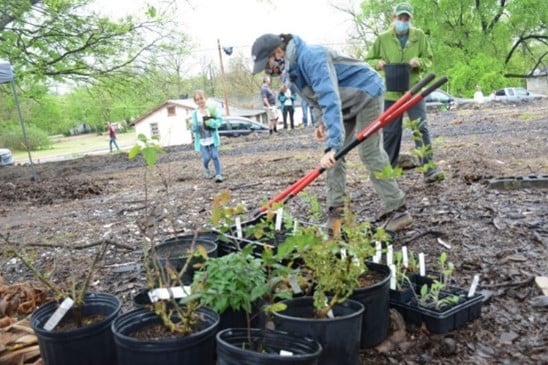The University of Alabama at Birmingham, Center for the Study of Community Health
Populations of Focus: rural and urban communities in Alabama
Topic Area: health disparities in predominantly African American communities
Introduction, Mission, and Vision
The Center for Study of Community Health at The University of Alabama at Birmingham (UAB PRC) is one of 26 Prevention Research Centers (PRCs) supported by the Centers for Disease Control and Prevention (CDC) for the 2019–2024 funding cycle. Each PRC is funded to establish and maintain their center and to conduct a core research project. PRCs may receive supplemental funding to conduct additional research projects and activities.
UAB PRC’s mission is to support and conduct research to guide programs and policies to promote community health. Its specific goals are to provide a university platform for community-based participatory research, engage partners through education and service, pursue research that enhances community health, and help translate evidence-based programs into practice.
“The center has a very strong focus on the community as an equal partner in our research and efforts to improve the social, mental, and physical health of residents,” said Jeff Walker, PhD, director of UAB PRC. “We contribute a community-owned approach to public health change that can serve others as they work in communities to identify issues and solutions.”
Core Research
Each PRC uses a community-engaged approach to conduct one primary applied public health prevention research project called a core research project. Project activities include design, development, implementation, evaluation, and dissemination. PRCs use at least 50% of their CDC funding to conduct the project in partnership with communities.
Community Health through Engagement and Environmental Renewal (CHEER)

In April 2021, volunteers worked in Titusville’s new Triangle Park to plant native species, install picnic tables, and install a gravel path. Photo by Sydney Cromwell.
UAB PRC’s core research project for the 2019–2024 funding cycle compares two intervention strategies—the Family System Intervention and the Community System Intervention—to examine the primary outcomes of improved social norms, social cohesion, and reduced early and risky sex behaviors.
The Family System Intervention will test an individually tailored, personally paced intervention facilitated by Community Health Advisors and delivered virtually or through printed materials. It seeks to enhance maternal coping and emotional regulation to improve parenting practices and parent-child communication and to reduce family conflict.
The Community System Intervention will offer microgrants for community-driven projects like gardens and picnic and playground areas. It seeks to encourage social interactions to enhance social cohesion and collective efficacy and to increase shared norms. Neighborhood projects will be led by volunteer community leaders and organizers.
Both interventions will use a 2×2 design to examine their independent and combined effects to determine whether one approach is more effective than the other. This method helps public health professionals understand how to best support their communities and similar populations.
Additional Research
PRCs may receive supplemental funding to work on additional research projects each funding cycle. These Special Interest Projects (SIPs) focus on a variety of health topics or gaps in scientific evidence. PRCs can also conduct additional research as part of SIP Thematic Research Networks, which are groups of PRCs working together on related health topics.
PRC Vaccine Confidence Network (PRC VCN)
In April 2021, CDC funded a 12-month award to all 26 PRCs to form the PRC VCN in support of the agency’s Vaccinate with Confidence strategy for COVID-19. As part of this network, UAB PRC is examining vaccine hesitancy to find ways to promote vaccine confidence, increase vaccine uptake, and reduce disparities in rural and urban communities across the state. The goal is to reduce the incidence of COVID-19 in the United States.
UAB PRC seeks to understand resistance and vaccine hesitancy among vulnerable populations, change attitudes through evidence-based messaging, and understand and address barriers to COVID-19 vaccination.
Social Connectedness, Multiple Chronic Conditions, and Epilepsy Incidence in Older Adults
This SIP study created an extensive data infrastructure to identify patterns of risk and protective factors for or against epilepsy onset, including medical and psychiatric chronic conditions, polypharmacy, and social factors. Data sources include Medicare records, the American Community Survey, and the National Social Life, Health, and Aging Project.

Location: Birmingham, Alabama
Principal Investigator: Jeff Walker, PhD
Deputy Director: Mary B. Evans, MA
Phone: (205) 975-8387